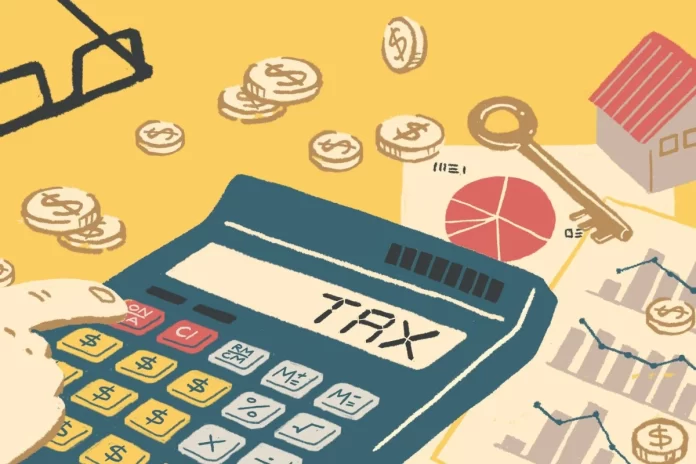The interim government has dropped yet another bomb on the nation by imposing a super tax. Is the super tax going to help our economy or is it going to discourage the investors from investing in Pakistan’s ailing economy?
Our political leadership gives the ailing nation of an ailing economy something to learn about every now and then. Remember Web 3.0? Well, there is another contender in town! and the super name of that super buzzword is “Super Tax”.
Super tax is a special tax that is imposed alongside the existing taxes. In other words, it is a surtax that the government levies in flimsy economic times (like we are in) in order to raise enough taxes to support the economy or for some special purpose.
Our collective memory is short-lived and among all the cries about the Super Tax, we forgot that such imposition of tax is not new to our economy. In 2015, such tax was imposed on banking companies and companies, including the Association of Persons other than banking companies at a rate of 4% and 3% respectively to collect money for the rehabilitation of temporarily displaced people of ex-FATA as a result of the war on terror. The 4% super tax on the banking sector remains to this day.
In March, after the no-confidence motion against Khan’s government succeeded in a tense political environment, the newly formed PML(N) government faced a difficult situation given our economic situation where our central bank held around $10.5 billion of foreign reserves and was continuously falling given the inflationary commodity pressure from the international market. To make things worse, as a popular political move, the PTI-led government had announced a massive subsidy on the petroleum prices and the govt revenues were taking a huge hit because of it. This was also in violation of the sixth review meeting with the IMF held in February 2022, where the government agreed to increase the petroleum levy by Rs. 4 per month till it reaches Rs. 30 (let alone a subsidy). This detracted the IMF program as well and more recently the country was rated negatively by Moody’s. In short, the government inherited a crisis from the previous government, and thus they had to take politically unpopular and economically tough decisions to bring the economy back on track and revive the program.
The first step in doing so was to put an end to the subsidies which the government delayed but eventually did. Similarly, other measures were taken as an increase in gas and electricity tariffs and a whole lot of tax measures, including a temporary Super Tax of 4% on all sectors plus an additional 6% tax (total of 10%) on 13 different industries such as cement, sugar, fertilizer and so on. This measure was to collect additional tax revenue from the industry, estimated at around
Rs. 80 billion, to bridge the widening fiscal deficit from the previous four years. As per the Pakistan Economic Survey 2022, our total revenue collection for the year was Rs. 5874.2 billion which accounts for 8.8% of the GDP. While during the same duration, our total expenditure stood at Rs. 8439.8 billion, posting a fiscal deficit of Rs. 2565.6 billion, and it is likely to increase next year if not for some radical changes.
This is one of the few moments where the rich are taxed to support the crumbling economy instead of the masses being a victim of the additional burden, though they already share it through double-digit inflation. Opponents of this movement believe that this will discourage investment in the economy as an already taxed formal sector will now be taxed at a much higher effective tax rate. They also build their case on the theory that such taxes will be passed on to the consumers resulting in higher inflation. This holds true since these major industries do not function in a free market but rather as clusters and oligopolies. They will collude to increase prices for the whole market and thus pass on the burden to the public. One counter to that theory is that such price increment will increase the income of these industries and thus pay more in taxes, but they ignore the simple arithmetic that these companies will earn more in profits per rupee than they will pay in taxes.
Proponents of this tax, however, believe that taxing the rich is a step in the right direction and should be coupled with an efficient and effective price control mechanism to save the end consumer from the brunt of higher inflation. This is further justified by the top hundred companies in Pakistan have amassed a profit of nearly 47% over the past two years given the stimulus packages announced by the government. According to the UNDP report 2020, our elite are given Rs. 2.66 trillion in relief, including an annual subsidy of Rs. 724 billion to the corporate sector. In other words, the government is just slashing a part of what it showers the corporate sector with.
To conclude, a temporary super tax is the right economic decision in the given circumstances; it will support the economy through the much-needed tax collection; will not fend investment since it is for a short period of one year; help the government spend on social uplift of the people facing severe inflation; shift the burden of tax from poor to rich; and promote a culture of taxing those milking money in corporate profits plus subsidies and tax breaks. However, this is not a long-term solution and the government needs to expand the tax net and increase the tax-to-GDP ratio which stands at a meager 8.8%, impose heavy taxes on real estate, and cut non-development and non-productive budgets of different institutions. This should be a
beginning to progressive and meaning taxation and the way we function the economy, and not a one-time measure by any means!




